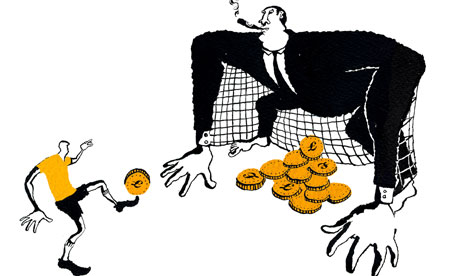By Spengler
The "founders of modern science", writes David Curzon in Jewish Ideas Daily [1]
of October 18, "were all believers in the truths of the opening chapter in the
Hebrew Bible. The belief implicit in Genesis, that nature was created by a
law-giving God and so must be governed by "laws of nature," played a necessary
role in the emergence of modern science in 17th-century Europe. Equally
necessary was the belief that human beings are made in the image of God and, as
a consequence, can understand these "laws of nature."
Curzon argues that the modern idea of "laws of nature" stems from the Bible
rather than classical Greece, for "ancient Greeks certainly believed that
nature was intelligible and that its regularities could be made explicit. But Greek gods such as Zeus were not
understood to have created the processes of nature; therefore, they could not
have given the laws governing these processes."
Is this just a matter of semantics? Is there a difference between the "Greek"
concept of intelligibility, and what Curzon calls the biblical concept of laws
of nature? After all, the achievements of Greek science remain a monument to
the human spirit. The Greek geometer Eratosthenesin the third century BCE
calculated the tilt of the earth's axis, the circumference of the earth, and
(possibly) the earth's distance from the sun. Archimedes used converging
infinite series to calculate the area of conic sections, approximating the
calculus that Newton and Leibniz discovered in the 17th century.
An enormous leap of mind, though, separates Archimedes' approximations from the
new mathematics of the 17th century, which opened a path to achievements
undreamed of by the Greeks. Something changed in the way that the moderns
thought about nature. But does the rubric "laws of nature" explain that change?
Curzon is on to something, but the biblical roots of modern science go much
deeper.
Before turning to the scientific issues as such, it is helpful to think about
the differences in the way Greeks and Hebrews saw the world. The literary
theorist Erich Auerbach famously contrasted Greek and Hebrew modes of thought
[2] by comparing two stories: the binding of Isaac in Genesis 22, and the story
of Odysseus' scar told in flashback (Odyssey, Book 19).
Homer's hero has returned incognito to his home on the island of Ithaca,
fearful that prospective usurpers will murder him. An elderly serving woman
washes his feet and sees a scar he had received on a boar hunt two decades
earlier, before leaving for the Trojan War, and recognizes him. Homer then
provides a detailed account of the boar hunt before returning to his narrative.
Homer seeks to bring all to the surface, Auerbach explained in his classic
essay. "The separate elements of a phenomenon are most clearly placed in
relation to one another; a large number of conjunctions, adverbs, particles,
and other syntactical tools, all clearly circumscribed and delicately
differentiated in meaning, delimit persons, things, and portions of incidents
in respect to one another, and at the same time bring them together in a
continuous and ever flexible connection; like the separate phenomena
themselves, their relationships - their temporal, local, causal, final,
consecutive, comparative, concessive, antithetical, and conditional limitations
- are brought to light in perfect fullness; so that a continuous rhythmic
procession of phenomena passes by, and never is there a form left fragmentary
or half-illuminated, never a lacuna, never a gap, never a glimpse of unplumbed
depths."
Auerbach adds, "And this procession of phenomena takes place in the foreground
- that is, in a local and temporal present which is absolute. One might think
that the many interpolations, the frequent moving back and forth, would create
a sort of perspective in time and place; but the Homeric style never gives any
such impression."
Stark and spare, by contrast, is the story of God's summons to Abraham to
sacrifice his beloved son Isaac. Where Homer tells us everything, the Bible
tells us very little. God speaks to Abraham, and Abraham says, "Here I am."
Auerbach observes, "Where are the two speakers? We are not told. The reader,
however, knows that they are not normally to be found together in one place on
earth, that one of them, God, in order to speak to Abraham, must come from
somewhere, must enter the earthly realm from some unknown heights or depths.
Whence does he come, whence does he call to Abraham? We are not told."
Abraham and Isaac travel together. Auerbach writes, "Thus the journey is like a
silent progress through the indeterminate and the contingent, a holding of the
breath, a process which has no present, which is inserted, like a blank
duration, between what has passed and what lies ahead, and which yet is
measured: three days!" Auerbach concludes:
On the one hand,
externalized, uniformly illuminated phenomena, at a definite time and in a
definite place, connected together without lacunae in a perpetual foreground;
thoughts and feeling completely expressed; events taking place in leisurely
fashion and with very little of suspense. On the other hand, the
externalization of only so much of the phenomena as is necessary for the
purpose of the narrative, all else left in obscurity; the decisive points of
the narrative alone are emphasized, what lies between is nonexistent; time and
place are undefined and call for interpretation; thoughts and feeling remain
unexpressed, are only suggested by the silence and the fragmentary speeches;
the whole, permeated with the most unrelieved suspense and directed toward a
single goal (and to that extent far more of a unity), remains mysterious and
"fraught with background".
Literary analysis may seem an
unlikely starting-point for a discussion of science. But the Hebrew Bible's
embodiment of what Auerbach called "the indeterminate and the contingent" has
everything to do with the spirit of modern science. This emerges most vividly
in the difference between the Greek and Hebrew understanding of time, the
medium through which we consider infinity and eternity.
What separates Archimedes' approximation from Leibniz' calculus? The answer
lies in the concept of infinity itself. Infinity was a stumbling-block for the
Greeks, for the concept was alien to what Auerbach called their "perpetual
foreground." Aristotle taught that whatever was in the mind was first in the
senses. But by definition infinity is impossible to perceive. In the very
large, we can never finish counting it; in the very small (for example
infinitely diminishing quantities), we cannot perceive it. Infinity and
eternity are inseparable concepts, for we think of infinity as a count that
never ends.
For the Greeks, time is merely the demarcation of events. Plato understands
time as an effect of celestial mechanics in
Timaeus, while Aristotle in
the
Physics thinks of time as nothing more than the faucet-drip of
events. That is Homer's time, in Auerbach's account. Biblical time is an
enigma. That is implicit in Genesis, as Auerbach notes, but explicit in the
Book of Ecclesiastes. Greek time is an "absolute temporal present."
In Hebrew time, it is the
moment itself that remains imperceptible. Here
is Ecclesiastes 3:15 in the
Koren translation (by the 19th-century rabbi
Michael Friedländer): "That which is, already has been; and that which is to be
has already been; and only God can find the fleeting moment." As I wrote in
another context, [3] Rabbi Friedländer's translation probably drew upon the
celebrated wager that Faust offered the Devil in Goethe's drama. Faust would
lose his soul will if he attempted to hold on to the passing moment, that is,
to try to grasp what only God can find. The impulse to grab the moment and hold
onto it is idolatrous; it is an attempt to cheat eternity, to make ourselves
into gods.
A red thread connects the biblical notion of time to modern science, and it is
spun by St Augustine of Hippo, the 4th-century Church father and polymath. His
reflection on time as relative rather than absolute appears in Book 11 of his
Confessions.
And his speculation on the nature of number in time takes us eventually to the
modern conceptual world of Leibniz and the calculus Aristotle's description of
time as a sequence of moments, in Augustine's view, leads to absurdities.
To consider durations in time, we must measure what is past, for the moment as
such has no duration. Events that have passed no longer exist, which means that
measuring past time is an attempt to measure something that is not there at
all. Augustine argues instead that we measure the memory of past events rather
than the past itself: ''It is in you, my mind, that I measure times,'' he
writes. Our perception of past events thus depends on memory, and our thoughts
about future events depend on expectation. Memory and expectation are linked by
''consideration.'' For ''the mind expects, it considers, it remembers; so that
which it expects, through that which it considers, passes into that which it
remembers.''
Time is not independent of the intellect in Augustine's reading. Expectation
and memory, Augustine adds, determine our perception of distant past and
future: ''It is not then future time that is long, for as yet it is not: But a
long future, is 'a long expectation of the future,' nor is it time past, which
now is not, that is long; but a long past is 'a long memory of the past.'''
This is the insight that allows Augustine to link perception of time to the
remembrance of revelation and the expectation of redemption.
A glimpse of what Augustine's theory of time implies for mathematics appears in
his later book,
Six Books on Music. I argued in a 2009 essay for First
Things: [4]
In De Musica, Augustine seeks to portray ''consideration''
as a form of musical number, that is, numeri judiciales, ''numbers of
judgment.'' These ''numbers of judgment'' bridge eternity and mortal time; they
are eternal in character and lie outside of rhythm itself, but act as an
ordering principle for all other rhythms. They stand at the head of a hierarchy
of numbers that begins with ''sounding rhythms'' - the sounds as such - which
are in turn inferior to ''memorized rhythms.''
Only the ''numbers of judgment'' are immortal, for the others pass away
instantly as they sound, or fade gradually from memory over time. They are,
moreover, a gift from God, for ''from where should we believe that the soul is
given what is eternal and unchangeable, if not from the one, eternal, and
unchangeable God?'' For that reason the ''numbers of judgment,'' by which the
lower-order rhythms are ordered, do not exist in time but order time itself and
are superior in beauty; without them there could be no perception of time.
Memory and expectation are linked by the ''numbers of judgment,'' which
themselves stand outside of time, are eternal, and come from God.
That is an intimation of a higher order of number. Because it is buried in a
treatise on musical time, Augustine's idea about "numbers of judgment" has
elicited scant scholarly interest. But it is clear that his "numbers of
judgment" are consistent with his much-discussed theory of "divine
illumination." He wrote in
Confessions, "The mind needs to be
enlightened by light from outside itself, so that it can participate in truth,
because it is not itself the nature of truth. You will light my lamp, Lord."
Descartes' "innate ideas" and Kant's "synthetic reason" descend from Augustine,
although Kant recast the concept in terms of hard-wiring of the brain rather
than divine assistance. The founder of neo-Kantian philosophy, Hermann Cohen
(1842-1918) built his career out of the insight that the fact that
infinitesimals in the calculus add up to a definite sum proves the existence of
something like synthetic reason. That is why Kant triumphed in philosophy and
the Aristotelians were reduced to a grumpy band of exiled irredentists.
Augustine's idea finds its way into modern science through Cardinal Nicholas of
Cusa (1401-1464). Theologian and mathematician, Cusa noticed that musicians
were tuning their instruments to ratios that corresponded to irrational
numbers. The "natural" intervals of music tuning clashed with the new
counterpoint of the Renaissance, so the musicians adjusted (or "tempered") the
intervals to fit their requirements.
The Greeks abhorred the notion of irrational number because they abhorred
infinity. Aristotle understood that infinity lurked in the irrational numbers,
for we can come infinitely close to an irrational number through an infinite
series of approximations, but never quite get there. And the notion of an
"actual infinity" offended the Greek notion of intelligibility. To medieval
mathematicians, the irrationals were
surds, or ''deaf'' numbers, that
is, numbers that could not be heard in audible harmonic ratios. The association
of rational numbers with musical tones was embedded so firmly in medieval
thinking that the existence of an irrational harmonic number was unthinkable.
The practice of musicians, Cusa argued, overthrew Aristotle's objections. The
human mind, Cusa argued, could not perceive such numbers through reason (
ratio),
ie the measuring and categorizing faculty of the mind, but only through the
intellect (
intellectus), which depended on participation (
participatio)
in the Mind of God.
Cusa's use of Augustinian terminology to describe the irrationals - numbers
''too simple for our mind to understand'' - heralded a problem that took four
centuries to solve (and, according to the few remaining "Aristotelian
realists," remains unsolved to this day).
Not until the 19th century did mathematicians arrive at a rigorous definition
of irrational number, as the limit of an infinite converging sequence of
rational numbers. That is simple, but our mind cannot understand it directly.
Sense-perception fails us; instead, we require an intellectual leap to the
seemingly paradoxical concept of a convergent infinite series of rational
numbers whose limit is an irrational number.
The irrational numbers thus lead us out of the mathematics of sense-perception,
the world of Euclid and Aristotle, into the higher mathematics foreshadowed by
Augustine (see my article, ''Nicholas of Cusa's Contribution to Music Theory,''
in
RivistaInternazionale di Musica Sacra, Vol 10, July-December 1989).
Once irrational numbers had forced their way into Western thinking, the agenda
had changed. Professor Peter Pesic [5] recently published an excellent account
of the impact of irrational numbers in musical tuning on mathematics and
philosophy. [6]
Another two centuries passed before Leibniz averred, ''I am so in favor of the
actual infinite that instead of admitting that nature abhors it, as is commonly
said, I hold that nature makes frequent use of it everywhere, in order to show
more effectively the perfections of its author.'' Theological concerns, one
might add, also motivated Leibniz' work, as I sought to show in ''The God of
the Mathematicians'' (First Things, August-September 2010).
Unlike Archimedes, who still thought in terms of approximations using rational
numbers, Leibniz believed that he had discovered a new kind of calculation that
embodied the infinite. Leibniz' infinitesimals (as I reported in ''God and the
Mathematicians'') lead us eventually to George Cantor's discovery of different
orders of infinity and the transfinite numbers that designate them; Cantor
cited Cusa as well as Leibniz as his antecedents, explaining ''Transfinite
integers themselves are, in a certain sense, new irrationalities. Indeed, in my
opinion, the method for the definition of finite irrational numbers is quite
analogous, I can say, is the same one as my method for introducing transfinite
integers. It can be certainly said: transfinite integers stand and fall
together with finite irrational numbers.''
Gilles DeLeuze (in
Leibniz and the Baroque) reports that Leibniz ''took
up in detail'' Cusa's idea of ''the most simple'' number: ''The question of
harmonic unity becomes that of the 'most simple' number, as Nicolas of Cusa
states, for whom the number is irrational. But, although Leibniz also happens
to relate the irrational to the existent, or to consider the irrational as a
number of the existent, he feels he can discover an infinite series of
rationals enveloped or hidden in the incommensurable.'' Leibniz thus stands
between Cusa in the fifteenth century and the flowering of the mathematics of
infinite series in the nineteenth century. That is a triumph of the biblical
viewpoint in modern science.
We can thus draw a red line from the Hebrew Bible (most clearly from
Ecclesiastes) to Augustine, and through Nicholas of Cusa to G W Leibniz and the
higher mathematics and physics of the modern world. The Hebrew Bible remains a
force in modern science, despite the best efforts of rationalists and
materialists to send it into exile.
Kurt Goedel, perhaps the greatest mathematician of the 20th century, approached
all his work with the conviction that no adequate account of nature was
possible without the presence of God. Inspired by Leibniz, Goedel destroyed all
hope of a mechanistic ontology through his two Incompleteness Theorems as well
as his work (with Paul Cohen) on the undecidability of the Continuum
Hypothesis, as I reported in a recent First Things essay. [7]
There is always a temptation to offer simple homilies in honor of the Bible,
for example, "intelligent design" theory, which in my view tells us nothing of
real importance. An atheist like Spinoza also would contend that God designed
the world, because in his philosophy God is the same thing as nature. Design
contains no information about the unique and personal God of the Bible.
Curzon's discussion of the laws of nature is by no means wrong, but it would be
wrong to leave the matter there. "The fear of God is the beginning of wisdom."
As Ecclesiastes (3:11) said, "I have observed the task which God has given the
sons of man to be concerned with: He made everything beautiful in its time; He
also put an enigma [sometimes "eternity"] into their minds so that man cannot
comprehend what God has done from beginning to end" (Ecclesiastes 3:11,
Artscroll
translation). Eternity is in our minds but the whole of creation is hidden from
us. Steven Hawking has gone so far as to conjecture that something like
Goedel's Incompleteness Principle might apply to physics as well as
mathematics.
What divides Hebrews from Greeks, above all, is a sense of wonder at the
infinitude of creation and human limitation. The Odyssey is intended to be
heard and enjoyed; Genesis 22 is to be searched and searched again for layers
of meaning that are withheld from the surface. The Greek gods were like men,
only stronger, better-looking and longer lived, immortal but not eternal, and
the Greeks emulated them by seeking become masters of a nature infested by
gods. The Hebrews sought to be a junior partner in the unending work of
creation. With due honor to the great achievements of the Greeks, modernity
began at Mount Sinai.




 wenty-two
years ago this coming Tuesday, I stood with a group of factory workers,
students and the unemployed in the middle of the downtown of my
birthplace, Flint, Michigan, to announce that the Hollywood studio,
Warner Bros., had purchased the world rights to distribute my first
movie, 'Roger & Me.' A reporter asked me, "How much did you sell it
for?"
wenty-two
years ago this coming Tuesday, I stood with a group of factory workers,
students and the unemployed in the middle of the downtown of my
birthplace, Flint, Michigan, to announce that the Hollywood studio,
Warner Bros., had purchased the world rights to distribute my first
movie, 'Roger & Me.' A reporter asked me, "How much did you sell it
for?"


